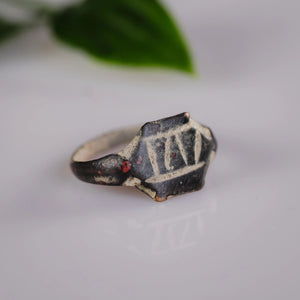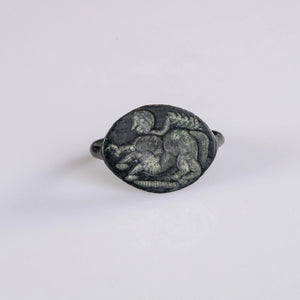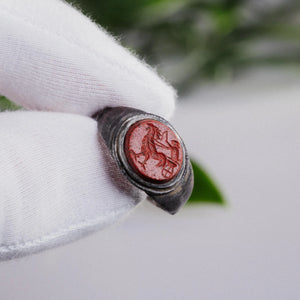Interesting facts
Understanding Germany's Weapon Regulations
Germany, known for its stringent approach to public safety and law enforcement, has a comprehensive legal framework that governs the possession and use of weapons. The German Weapons Act ('Waffengesetz') serves as the cornerstone of these regulations, detailing which weapons are permitted and which are expressly forbidden. This exploration of what weapons are illegal in Germany offers clarity and practical understanding.
Historical Context and Legislative Approach
At the heart of German weapon legislation is public safety. Post-World War II shifts have led to a cautious and meticulous approach toward weapon control. This careful balance aims to prevent violent crime, accidents, and misuse by setting clear legal distinctions between permissible and banned weapons. The objective is to protect citizens without outright banning tools and weapons that serve legitimate purposes, such as hunting or sport.
Firearms: Stringent Controls and Licensing
One critical category of illegal weapons is firearms, particularly fully automatic firearms. These are strictly controlled and generally prohibited for civilian use. Ownership is possible under tight licensing conditions, requiring proper justification, background checks, and secure storage. Demonstrating genuine need, such as for sport shooting or hunting, and proving responsible handling, is mandatory.
Edged and Blunt Weapons
Beyond firearms, banned weapons include various edged and blunt implements. Butterfly knives, or 'Balisongs,' are prohibited due to the risk associated with their rapid deployment. Similarly, throwing stars are banned; despite often being viewed as collectibles, their potential lethality warrants their prohibition.
Regulating Steel Bars and Crossbows
Certain steel bars or rods fall under prohibitions depending on their dimensions, illustrating the complexity in legislating items with potential for harm. For those interested in historical weaponry that is legal, exploring fine antique collections can provide insight into the artistry and functionality of ancient weapons. Crossbows are mostly legal, used in sporting contexts, but automatic and excessively powerful versions are restricted. These nuanced laws ensure traditional sports can continue safely.

Legal Ramifications of Weapon Possession
Penny-plain items like knives can shift from legal to illegal based on possession context. Germany's legal landscape emphasizes responsible ownership and legal compliance, recognizing both personal freedoms and public safety.
Cultural and Historical Influences
Germany's approach, shaped by past conflicts and a focus on social order, contrasts with less restrictive countries. A privilege granted under strict conditions, weapon ownership is viewed within a framework prioritizing societal safety.
Innovation and Legal Developments
Laws evolve with technological advances, crime pattern changes, and shifts in societal attitudes, ensuring current relevance. For example, new folding knife technology has prompted updates, balancing innovation and control.
Impact on Tourists and Foreign Residents
For tourists and residents, compliance with German law is paramount to avoid legal issues. Awareness of legal distinctions and adhering to transport and possession rules prevent unintended violations.
Penalties for Violations
Severe consequences await those who possess or distribute illegal weapons. Fines and imprisonment reflect the seriousness of violating these laws, which prioritize public safety. For a comprehensive guide on crossbows, their uses and regulations, cooperation with law enforcement can mitigate penalties, but adherence remains crucial.
Conclusion: Responsible Ownership and Cultural Balance
Germany’s approach to illegal weapons is characterized by detailed, carefully crafted laws designed to uphold public safety without unnecessarily restricting lawful uses. A reflection on culture and security, the legal framework serves to educate and protect, with fascinating insights into historical contexts as seen in crossbows, a subject of sports and hunting.
Are there any unique cultural weapons associated with Germany?
Yes, Germany has a rich history with culturally significant weapons, particularly the crossbow. Historically, the crossbow was a popular weapon in medieval Europe, including Germany, both for warfare and hunting. It is renowned for its precision and power. Today, crossbows are used mostly in sporting events or for historical re-enactments, showcasing Germany's cultural heritage.
Through regulation and education, Germany maintains a secure environment, balancing cultural traditions, sporting uses, and public security. In sum, legality hinges on specific details. Whether concerning the mechanical design of a knife, crossbow firing capacity, or the intent behind possession, these distinctions underscore the nuanced legal landscape in Germany, emphasizing the importance of responsible ownership and cultural respect.
For more detailed legal insights or case law examples, consulting legal experts ensures full compliance and peace of mind—essential for both residents and visitors aiming to navigate Germany's complex weapon regulations responsibly.
Germany's Weapon Regulation Balance
Reflecting on regulations, it's evident how law, culture, and responsibility intersect in Germany's weapon ownership landscape. Restrictions foster a broader effort to ensure individual freedom and public safety. Understanding these nuances enhances societal interaction and community safety.
Ancient Artifacts Await!
Explore RingWhat types of firearms are illegal in Germany?
Fully automatic firearms are generally prohibited for civilian ownership in Germany, requiring tight licensing and justification even for semi-automatic firearms.
Are there any knives that are banned in Germany?
Yes, certain knives like butterfly knives and throwing stars are prohibited in Germany due to their potential for concealed and unexpected use.
How does the German Weapons Act impact tourists or foreigners?
Tourists and foreigners must comply with German weapon laws, ensuring any legally owned items elsewhere meet local standards, avoiding legal issues.




